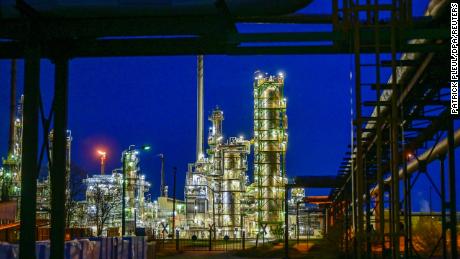
London – The European Union has agreed on a partial ban on Russian oil imports, according to European Council chief Charles Michel.
“Agreement to ban export of Russian oil to the EU. This immediately covers more than 2/3 of oil imports from Russia, cutting a huge source of financing for its war machine,” Michel announced in a tweet on Monday evening.
Michel’s announcement followed an extraordinary European Council summit attended by EU leaders in Brussels on Monday to discuss a sixth package of sanctions against Russia.
“This sanctions package includes other hard-hitting measures: de-Swifting the largest Russian bank Sberbank, banning 3 more Russian state-owned broadcasters, and sanctioning individuals responsible for war crimes in Ukraine,” Michel added.
EU leaders will meet again in Brussels on Tuesday to discuss the bloc’s response to Russia’s invasion of Ukraine.
Officials first proposed joining the US and others in banning Russia’s oil a month ago as part of a sixth package of EU sanctions over the country’s invasion of Ukraine. But an agreement has been held up by some countries, like Hungary, that are particularly reliant on Russian crude delivered via pipeline.
An EU official told CNN earlier that banning all seaborne oil would cover more than two-thirds of imports from Russia.
Europe is the biggest buyer of Russian energy. Russian crude accounted for 27% of the bloc’s imports in 2021, according to Eurostat. That’s around 2.4 million barrels per day, data from the International Energy Agency shows. About 35% of that was delivered via pipelines to the bloc, according to the IEA.
But pipeline deliveries made up a much bigger share of Russian oil shipments to Hungary (86%), the Czech Republic (97%) and Slovakia (100%).
As reported by CNN
